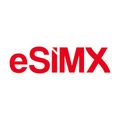Simfinity Telco LLC - propose des solutions eSIM abordables et flexibles pour les voyageurs internationaux, permettant une connectivité transparente dans plus de 190 pays sans avoir besoin de cartes SIM physiques. Avec une activation instantanée, aucun frais d'itinérance et des forfaits de données adaptés aux voyageurs, Simfinity garantit que rester connecté dans le monde entier est simple et sans tracas.

Simfinity Telco LLC - propose des solutions eSIM abordables et flexibles pour les voyageurs internationaux, permettant une connectivité transparente dans plus de 190 pays sans avoir besoin de cartes SIM physiques. Avec une activation instantanée, aucun frais d'itinérance et des forfaits de données adaptés aux voyageurs, Simfinity garantit que rester connecté dans le monde entier est simple et sans tracas.
Forfaits de données eSIM Simfinity pour l'Océanie
Questions fréquemment posées
Simfinity propose-t-il une eSIM à données illimitées pour l'Océanie ?
Simfinity n'offre pas de plan eSIM à données illimitées pour l'Océanie. Tous les plans disponibles de Simfinity pour la région disposent d’une allocation de données fixe, comme le plan Global eSIM avec 25 GB ou le Asia Pacific Pass avec 10 GB, et la validité de chaque plan est indiquée en jours illimités.
Si un voyageur a besoin d’une grande quantité de données, choisir l’un de ces plans à données fixes peut être plus économique, à moins que l’utilisateur ne consomme une quantité de données extrêmement élevée.
Le 25 GB Global eSIM et le 10 GB Asia Pacific Pass sont des exemples d’options à haute capacité de données actuellement disponibles pour l'Océanie.
Simfinity propose-t-il une eSIM Oceania avec numéro de téléphone et SMS ?
Simfinity n'offre pas d’eSIM pour l’Océanie incluant un numéro téléphonique ou la capacité d’envoyer des SMS. Tous ses forfaits pour la région sont uniquement en data, donc les utilisateurs ne recevront pas de numéro local ni ne pourront envoyer ou recevoir de messages téléphoniques standard. Les voyageurs souhaitant communiquer peuvent à la place utiliser des applications de messagerie et d'appel basées sur les données telles que WhatsApp, Telegram ou iMessage via la connexion data.
Quels pays sont couverts par les forfaits eSIM de Simfinity en Océanie ?
Les offres eSIM de Simfinity comprennent la Global eSIM, le Asia Pacific Pass et le World Wide Pass, qui offrent toutes une couverture en Australie et en Nouvelle‑Zélande, les seuls pays d’Océanie figurant dans l’ensemble approuvé pour ces plans.
Résumé avec Gen AI. Dernière mise à jour:




